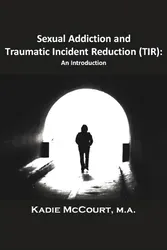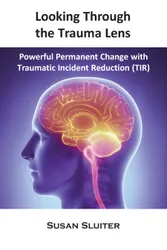Let's consider why Traumatic Incident Reduction (TIR) would be expected to be different with an autistic client. One of the hallmarks of autism is a lack of connection with the real world, so the world view of an autistic individual is limited and often very inaccurate. A second hallmark of autism is difficulty with intrapersonal and interpersonal relationships so that insight into how to make relationships better, or work at all, would be expected to be limited. So, within a TIR session where we expect our clients to come up with their own insights, that's really a tall order. Then the meltdowns I've talked about; as a Davis facilitator I understand these as prolonged and severe disorientations, analogous to a PTSD episode, in which the emotional reaction is really out of sync with true facts and conditions in the current situation. Added to all this are the phobias and the extreme aversions that many autistic individuals experience, which can limit full participation in life. One of the things that makes working with autistic clients challenging is that often we simply have to wait until they give us that little window of time when they are able and willing to proceed. If I were to use the guidelines in my TIR Workshop manual, I would have to conclude that there was not enough ego strength or resiliency in these individuals for them to be able to engage for a successful TIR session. You know what they say about fools who rush in where angels fear to tread... A less foolish person than I am, and especially someone new to TIR, would likely never have tried to use TIR with autistic clients. However, based on the wonderful results I have seen using TIR with many of my other clients who do not have autism, and some of the really significant problems that some of my autistic clients were presenting, I decided to try TIR with a few of them. In the remainder of this lecture, we'll consider two specific case studies. Veronica, a sixteen-year old who basically lived as a recluse in her mother's basement, and Joshua, a young boy obsessed with drum kits who was given to periods of extremely oppositional behavior. Cathy Dodge Smith uses Davis Methods in her practice (Davis Dyslexia Correction Program, Davis Autism Approach, and Davis Attention Mastery ). She is also a Certified TIR Facilitator. This article is from her presentation at the 2014 Symposium. Originally appeared in AMI/TIRA Newsletter, Volume XII, Number 1 (March 2015).

Sexual Addiction and Traumatic Incident Reduction (TIR)
Kadie McCourt
book
Traumatic Incident Reduction (TIR) and Primary Resolution of the Post-Traumatic Stress Disorder (PTSD)
Robert H. Moore
book
A Proposed Treatment Connection for Borderline Personality Disorder (BPD)
Ashley Doyle
book
Substance Dependency, PTSD and Traumatic Incident Reduction (TIR) in South Africa
Elca Erlank
book
Looking Through the Trauma Lens
Susan Sluiter
book
Critical Issues in Trauma Resolution
Frank A. Gerbode
book
Brief Treatment of Trauma-Related Symptoms in Incarcerated Females with Traumatic Incident Reduction (TIR)
Pamela V. Valentine
book
A Comparison of Traumatic Incident Reduction (TIR) and Prolonged Exposure (PE) Therapy
Nancy L. Day
book

Mother in the Middle: A Biologist's Story of Caring for Parent and Child
Sybil Lockhart
book
Sexual Neuroses
J. T. Kent
book
Aphrodite's Daughters: Women's Sexual Stories and the Journey of the Soul
Jalaja Bonheim
book
What's a Mother (in-Law) to Do?: 5 Essential Steps to Building a Loving Relationship with Your Son's New Wife
Jane Angelich
book
Pipe Dreams : The Urgent Global Quest to Transform the Toilet
Chelsea Wald
audiobookbook
The Virgin and the Gipsy
David Herbert Lawrence
book
Love and Sex
Vladimir Živković
book
The Sexual Instinct and its Morbid Manifestations from the Standpoint of Jurisprudence & Psychiatry
Benjamin Tarnowski
book
Is This Normal? : Judgment-Free Straight Talk about Your Body
Jolene Brighten
book
Water, Birth and Sexuality : Our primeval connection to water, and its use in labour and therapy
Michel Odent
book
The Families of Eleanor of Aquitaine : A Female Network of Power in the Middle Ages
J.F. Andrews
book
Fashion and Fetishism : Corsets, Tight-Lacing and Other Forms of Body-Sculpture
David Kunzle
book
